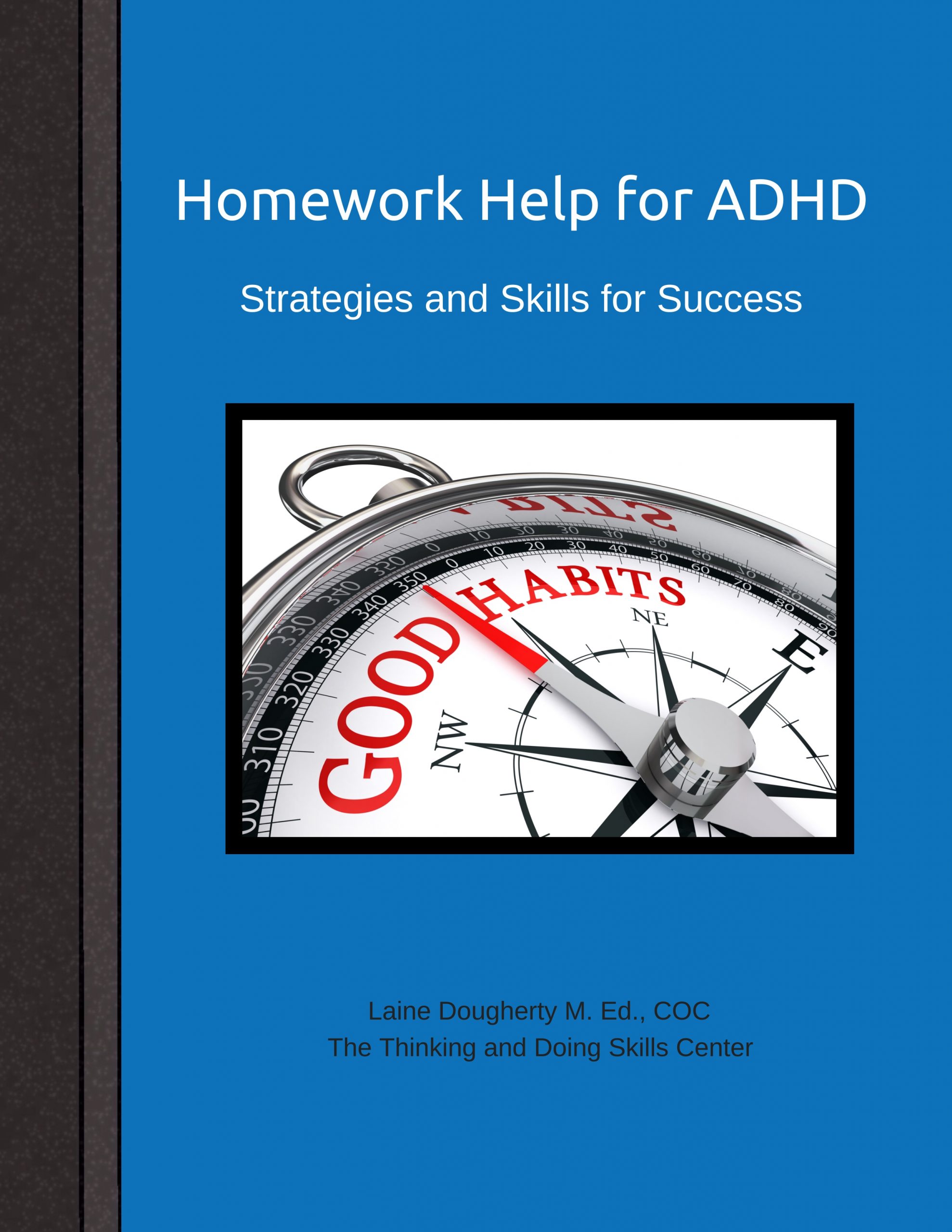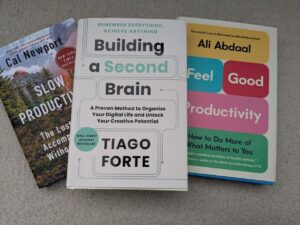 Personal productivity, is the art of getting things done or as ChatGPT defines it, “Completing tasks, managing time, and achieving goals in your daily life or work.”
Personal productivity, is the art of getting things done or as ChatGPT defines it, “Completing tasks, managing time, and achieving goals in your daily life or work.”
Are you happy or should I say satisfied with your level of personal productivity?
Let’s take a closer look at that definition. The first thing it mentions is completing tasks. What tasks does it mean? If it is the tasks on my to-do list then there isn’t enough time in the day to do all of them. How do I choose? We’ve all had an extremely busy day of getting things done but at the end of it, we either can’t cross anything off the list or we feel like we really didn’t accomplish anything important.
Every day, everywhere we look we are exposed to all kinds of options and choices. Sure, we’d like to do it all, but it is probably not humanly possible. So, we have to make choices. Choices should represent the important things, those high impact tasks that make a big difference but are not a lot of work. Knowing ahead of time what those tasks are takes some thought (usually ahead of time) to be most effective.
One way is to create a realistic plan for the week based on the available time you REALLY have and then ask yourself, “What is really important for this week?” If you have a master list of your tasks, then just going through that will trigger the important things but remember….you can’t (and shouldn’t) try to do it all.
Take the tasks that you feel need to be done this week and write them down on a new list. Now, based on the available time you have, the time of day, and the priority level of the task, decide where in the week will you get that done? Having a plan allows you to see not only what the most important task is but also, how other tasks may be grouped together to save you time and energy. Estimate how long your tasks may take to be sure you are not trying to be a super hero. Or you can wake up slowly on Monday morning and wonder, “What do I feel like doing today?” I know I would go for the easiest tasks but those are not usually the most important ones, are they?
Managing Time
Managing time is mentioned next in the ChatGPT definition above, but what does that mean? I certainly don’t know how to “manage” time, in fact it often flies by without me even noticing it, how can I manage it? Did you notice after the clocks changed, how much faster the day went by? It wasn’t really faster, it just seemed like the day was longer, because the sun was out longer. Time ticks away a minute at a time no matter what we try to do about it. We can only “manage” ourselves by following our plan, limiting what distracts us (unless it’s our kids) and having clear boundaries around our time.
You can “save” time by having habits and routines that keep the family current.
Which would you rather….
- Do 2 loads of laundry or 7?
- Take 30 seconds to put dishes in the dishwasher or wait until the sink and counters are full?
- Know what is for dinner and have it or figure it out at 7:30pm?
- Have kids put their toys away before bed or risk stepping on a Lego in the dark?
- Start the week with a full tank of gas or risk being late for that meeting because you had to stop for gas?
- Paying your bills on time or risk having to pay the late fee?
By having set days or times that you do certain tasks automatically, you can save energy and time and lower your stress. When the children are involved in the daily chores, they develop accountability and responsibility. Working together can build their confidence and self-esteem. Pitching in can develop cooperation and teamwork while they learn essential life skills like organization and time management. It’s a win-win situation.
Achieving Goals in Your Daily Life or Work
The third and final piece of the personal productivity definition is, “achieving goals in your daily life or work.” A goal can give you a glimpse into the future and maybe provide motivation when things become difficult. It is your “why.” It points you in the direction of your best self but it doesn’t tell you how to get there. That’s where “PACT” can help. PACT is an acronym, similar to SMART that is used to create goals, but PACT is more focused on the actions needed to attain a goal. PACT stands for Purposeful, Actionable, Continuous, and Trackable.
PACT pushes you to go deeper and to think about the actions needed to get to your goal. It focuses on output – actions you can do now to move you in the direction of that goal. If that doesn’t work, the “C” encourages you to try something else. Continuously working towards your goal by designing different experiments, like a scientist might, to collect the data on your results. You can easily see that because you are keeping track and adjusting when necessary.
So, if you are looking to improve your personal productivity, first, think about why. Why do you want to be more productive? Is it just to get more done? I hope not. Is it to follow through on what you have already agreed to and is it essential enough for you to give your irreplaceable, and limited time to? If not, then let it go. There is a big difference between what we need to get done and what we “want” to get done. Check your list, cross off anything you can. Focus on the important things – those things that move you in the direction you want to go in. It’s not about how much you get done. It’s about getting the important things done and to do that…..
Make sure to:
- Take care of yourself
- Create habits and routines that make life easier
- Plan ahead
- Reset nightly for the next day
- Get the family involved
- Focus on the important things
- Take time to recharge
If you’re feeling overwhelmed or confused on where to start, then use the above list to help you figure out a PACT goal that will lead you to the actions you need to get there. For example:
P – To have enough energy to feel good and get through my day
A – Go to bed at 10pm every night
C – Might need to go screen free at 9pm
Or make sure the kids go to bed on time
Or shower in the morning
T – Track what time I do go to bed (and how do I feel the next day) That is one simple example of how you get to “taking care of yourself.”
Now it’s your turn, what is one thing you can do to increase your level of productivity? Let us know on our FB page.
Image by TyliJura from Pixabay
 Sundays are my new favorite day of the week. Over the last 6 months or so, I have developed my own reset plan for Sundays. It helps me start the week off with clear goals and clean laundry.
Sundays are my new favorite day of the week. Over the last 6 months or so, I have developed my own reset plan for Sundays. It helps me start the week off with clear goals and clean laundry.





 Personal productivity, is the art of getting things done or as ChatGPT defines it, “Completing tasks, managing time, and achieving goals in your daily life or work.”
Personal productivity, is the art of getting things done or as ChatGPT defines it, “Completing tasks, managing time, and achieving goals in your daily life or work.” The simple answer is NO! Homework does NOT have to be a battle.
The simple answer is NO! Homework does NOT have to be a battle. Every day in multiple ways we are bombarded with information. Whether it is auditory, visual or both, information is all around us even if we don’t want it to be. According to an article in the
Every day in multiple ways we are bombarded with information. Whether it is auditory, visual or both, information is all around us even if we don’t want it to be. According to an article in the  As my friend and fellow Productivity Coach, Colleen, said recently, “and just like that it is December!” Yes, December is here, marking the end (almost) of another year. As we close the door and wrap up another year, do you think it was a good year? I hope so. If you’re like me, you might need some help remembering what you did do in early 2024 and not just what you didn’t do. Our brains naturally hang onto the negative more than the positive so before we judge how the year went, let’s take a step back.
As my friend and fellow Productivity Coach, Colleen, said recently, “and just like that it is December!” Yes, December is here, marking the end (almost) of another year. As we close the door and wrap up another year, do you think it was a good year? I hope so. If you’re like me, you might need some help remembering what you did do in early 2024 and not just what you didn’t do. Our brains naturally hang onto the negative more than the positive so before we judge how the year went, let’s take a step back.
 October is ADHD Awareness/Empowerment Month. Each year the media, and the three national ADHD organizations, provide information on the latest scientific research to publicize and educate. The myths and misinformation continue to interfere with individuals seeking or getting help but, these three organizations are trying to help
October is ADHD Awareness/Empowerment Month. Each year the media, and the three national ADHD organizations, provide information on the latest scientific research to publicize and educate. The myths and misinformation continue to interfere with individuals seeking or getting help but, these three organizations are trying to help  We’ve all heard the term “work/life balance” and its implied connotation that it is possible to achieve a 50/50 balance between work and our other responsibilities to ourselves and our families. I believe that we each have to find our own sense of “balance” and the summer is the perfect time to change things up. What do you think?
We’ve all heard the term “work/life balance” and its implied connotation that it is possible to achieve a 50/50 balance between work and our other responsibilities to ourselves and our families. I believe that we each have to find our own sense of “balance” and the summer is the perfect time to change things up. What do you think? Summer is coming – that’s the good news! We want to enjoy the summer but with graduations, weddings and bbqs happening every weekend, things can get ahead of us because we don’t have the time but we also don’t want to use what little time we do have on decluttering, so things can pile up- that’s the bad news.
Summer is coming – that’s the good news! We want to enjoy the summer but with graduations, weddings and bbqs happening every weekend, things can get ahead of us because we don’t have the time but we also don’t want to use what little time we do have on decluttering, so things can pile up- that’s the bad news. We all want our children to grow up to be responsible, successful members of society. Isn’t that what you want for your child? So, we “help” them at every turn so that they can make it to school on time, complete their homework perfectly, and get good grades.
We all want our children to grow up to be responsible, successful members of society. Isn’t that what you want for your child? So, we “help” them at every turn so that they can make it to school on time, complete their homework perfectly, and get good grades. There are two kinds of people – those that love routines and those that don’t. Which are you?
There are two kinds of people – those that love routines and those that don’t. Which are you?